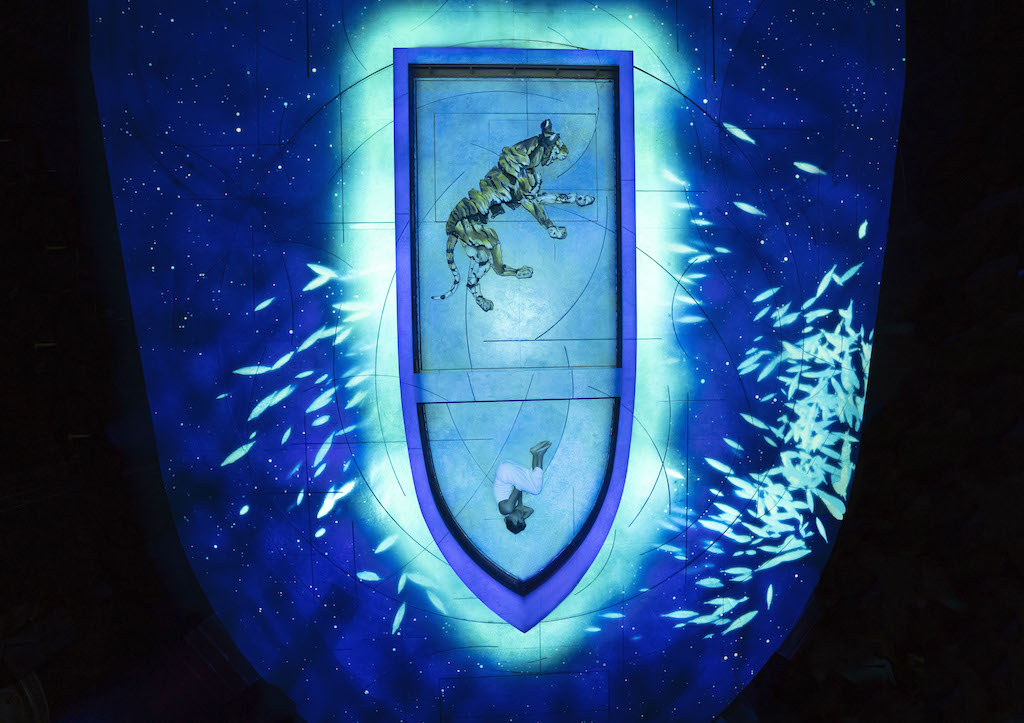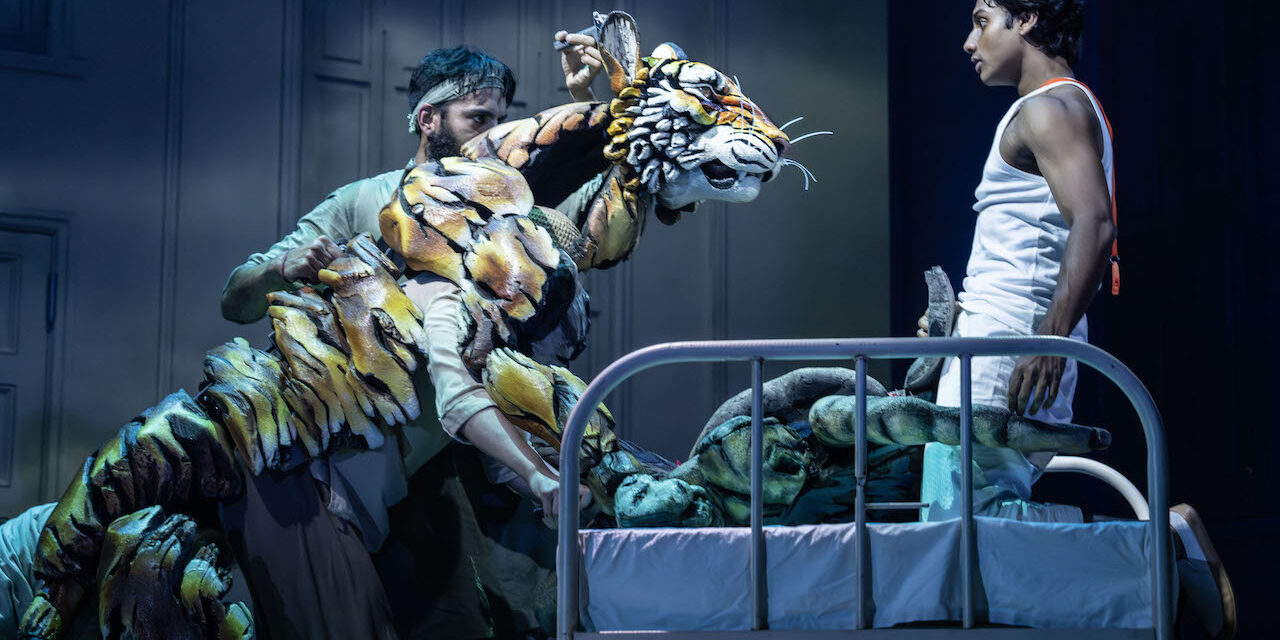
15 – 20 January
Playwright Lolita Chakrabarti’s adaptation of Yann Martel’s novel won her the Olivier Award for Best Play. It is easy to see why. Having started life at the Sheffield Crucible, the play enjoyed a 14-month run in the West End before sell-out shows in Boston led to an opening on Broadway in 2023. Now on a UK tour to 30 theatres, last night it was the turn of Bristol to savour this magical piece of storytelling. I urge you to catch it while you can.
I doubt whether you will see better staging than in this Max Webster directed epic. With magical lighting design by Tim Lutkin and Tim Deiling, perfectly attuned sound from Carolyn Downing and experience enhancing video from Andrej Goulding, Tim Hatley’s set seemed to come alive. There were effortless transitions between hospital ward, warmly lit Indian zoo and bustling Pondicherry market to the creaking hulk of the doomed ship Tsimtsum. Later, the expanse of a starlit sky over a drifting lifeboat with its unlikely occupants bound for the Mexican shore, and visited by passing aquatic animals, was spellbinding.
This was thrilling theatre-making at its best. Puppet designers Nick Barnes and Finn Caldwell and the teams of operators seemed to have inhabited the very souls of the animals they have created, so lifelike were their shapes, sounds characteristic movements, reactions and attitudes. All of which laid the best possible ground for Martel’s extraordinary tale of survival, and search for truth.
Divesh Subaskaran plays the young Pi, a boy fascinated by the idea of discovering God by sampling all religions for their paths to enlightenment. Wearing simple white cotton top and shorts which shone out brightly against the rich warm colours of the set, Subaskaran’s gentle style had a powerful effect – his Pi carried the narrative with effortless command, while his existential fears were made palpable.
Starting with end of the story, Pi is questioned in the hospital he has been brought to, to explain the circumstances of the sinking of the wreck he has survived. As he begins his tale we swirl back in time to his roots in India.
Pi’s father (Ralph Birtwell), a no-nonsense sort of man who runs the Pondicherry Zoo, gives Pi and his brother unforgettable lessons in the dangers inherent in all beasts, while his mother Amma (Goldy Notay) and uncle Mamaji (Chand Martinez) paint a picture of happy family life. A giraffe, a hyena, an orangutan and a zebra make appearances before Richard Parker, the quirkily named Bengal tiger, finally makes his devastating first entrance in the zoo, leaving us in no doubt as to his threat.
As political unrest bears down on the viability of the zoo, Pi’s family make a break for Canada. Animals are crated, India is bid farewell before tragedy strikes at sea. Pi finds himself afloat in a lifeboat with the now uncaged zebra, hyena and a desperate tiger also eager to survive. What could possibly go wrong? Puppetry Movement Director Finn Caldwell’s vision for this extraordinary episode is exhilarating, the audience electrified at the intensely powerful conclusion to act one.
Sadly, we were informed before the second act that Subaskaran had been incapacitated during the interval and that the role of Pi would be continued by understudy Keshini Misha. That she did so with absolute confidence was met at the final curtain with huge appreciation by a thrilled Hippodrome audience. Cast and creatives had delivered a masterpiece.
★★★★★ Simon Bishop, 17 January, 2024


